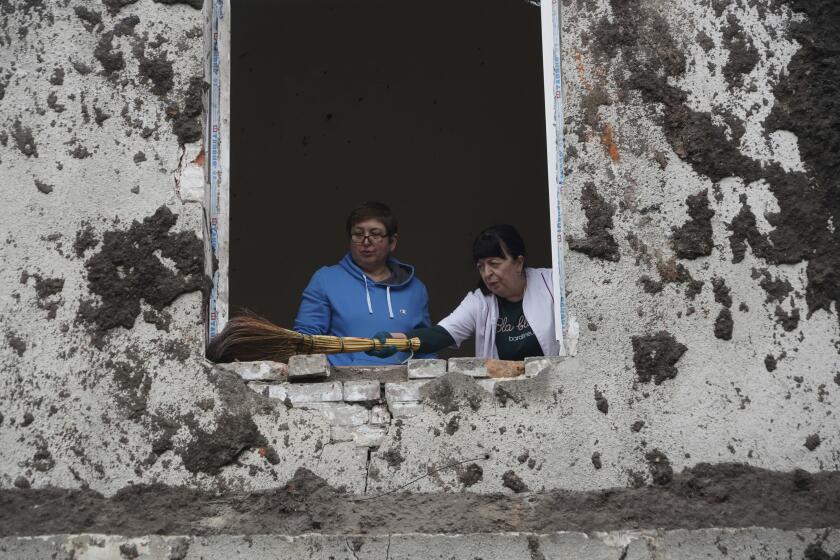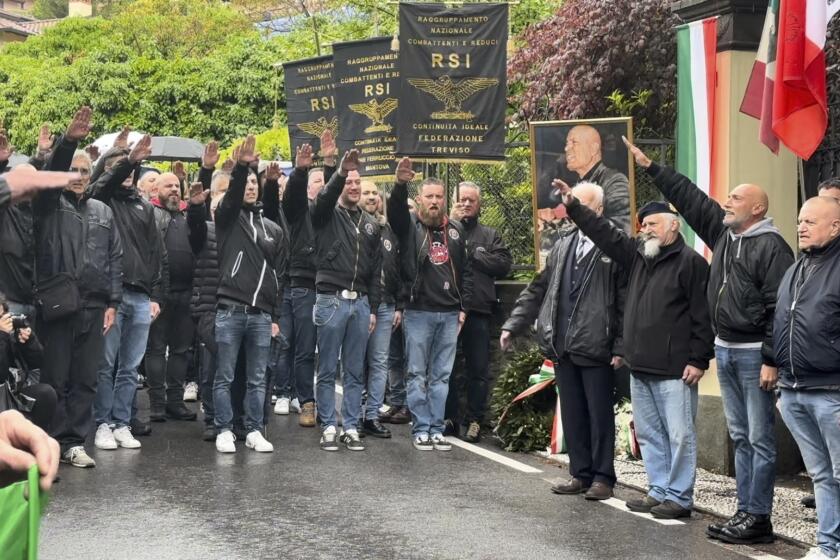U.S. diplomats ordered to gather data on counterparts, WikiLeaks releases show
U.S. diplomats have been directed by Washington to gather detailed data on their foreign counterparts, including the kinds of information usually sought by spies, according to diplomatic cables made public Sunday.
The cables, part of the WikiLeaks website’s massive release of secret U.S. dispatches, show that diplomats have been asked to gather counterparts’ credit card and frequent flier numbers, iris scans, as well as information on their Internet identities and the telecommunications networks they use.
The activities are laid out in dispatches that describe how the diplomats must fulfill their obligations under a previously undisclosed program called the National Humint Collection Directive. In the intelligence world, “Humint” is an abbreviation for “human intelligence.”
U.S. and other intelligence agencies often have assigned agents to work overseas under diplomatic cover. But if foreign governments became convinced that U.S. diplomats frequently function as spies, it could put at risk their ability to conduct normal diplomatic activities and increase the odds that they could be expelled for espionage, a retired diplomat said Sunday.
It was not immediately clear from the documents when the program had started, whether diplomats had resisted it or whether any had provided information that turned out to be particularly valuable.
The cables, dating from the Bush administration in 2008 to the Obama administration in 2009, also show the State Department had a keen interest in the activities of United Nations Secretary-General Ban Ki-moon and his staff.
A cable from July 2009 instructs U.S. diplomats to gather personal information on U.N. officials, including cellphone numbers, pagers and faxes; Internet and intranet user names; e-mail addresses; credit card and frequent flier account numbers; and work schedules.
It asked diplomats to pass on to the intelligence community the “plans and intentions” of U.N. officials who work on key issues, including Iran, Afghanistan and North Korea. Diplomats are also asked to seek “biographic and biometric” information on North Korean representatives to the United Nations.
In an April 2009 cable, diplomats are ordered to gather information on officials of certain African countries, including “e-mail addresses, telephone and fax numbers, fingerprints, facial images, DNA, and iris scans.”
E-mail addresses and frequent flier numbers are valuable to the National Security Agency, which specializes in intercepting telephone and computer communications, to track the movements and conversations of foreign officials.
The cables tied to the Humint program were sent to embassies in Eastern Europe, the Middle East and Latin America, as well as the U.S. mission to the United Nations. They were signed by Secretary of State Hillary Rodham Clinton or her predecessor, Condoleezza Rice.
State Department officials sought to minimize Clinton’s role. Patrick Kennedy, the undersecretary of State for management, said in a statement Sunday evening that “the long-standing practice at the State Department is to include the secretary’s name at the end of every cable sent from Washington.”
But this practice did not mean that the secretary had reviewed or approved the hundreds of thousands of cables sent each year, he said.
Wayne E. White, a former senior official with the State Department’s intelligence arm, said some of the activities of diplomats described in the cables are routine, such as gathering information on foreign officials’ biographies, tastes, family life, work schedule and contact information. The State Department wants to know what it can about the activities and personal tastes of key officials, he said.
But detailed financial information, such as credit card numbers and frequent flier identification numbers, “strikes me as odd,” White said.
The disclosure that U.S. diplomats have been seeking such information “could upset a number of foreign governments,” he said.
Philip J. Crowley, the chief State Department spokesman, disputed that there has been a blurring of lines between diplomats and spies.
“Our diplomats are just that, diplomats,” he said. “They represent our country around the world and engage openly and transparently with representatives of foreign governments and civil society. Through this process, they collect information that shapes our policies and actions. This is what diplomats, for our country and other countries, have done for hundreds of years.”
Though U.S. diplomats are generally supportive of the United Nations staff, there have been past disclosures of U.S. intelligence gathering at the organization. In 2004, it was disclosed that the United States and Britain had recorded the conversations of then-Secretary-General Kofi Annan before the U.S.-led invasion of Iraq in 2003.
More to Read
Start your day right
Sign up for Essential California for news, features and recommendations from the L.A. Times and beyond in your inbox six days a week.
You may occasionally receive promotional content from the Los Angeles Times.








